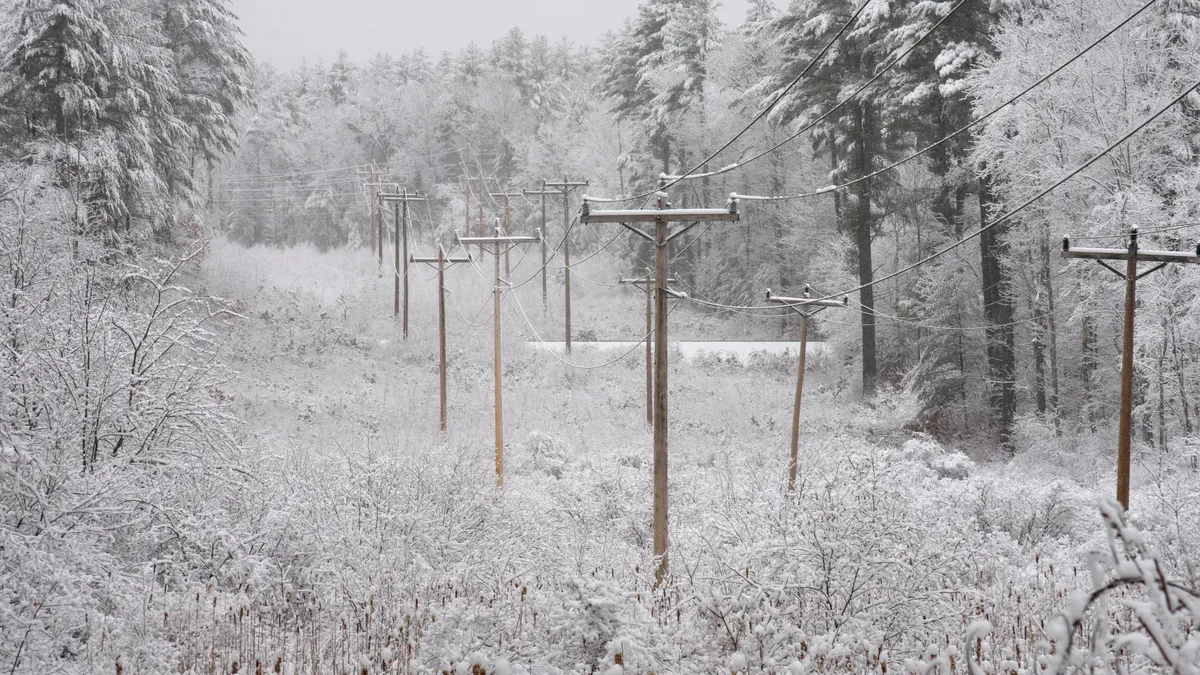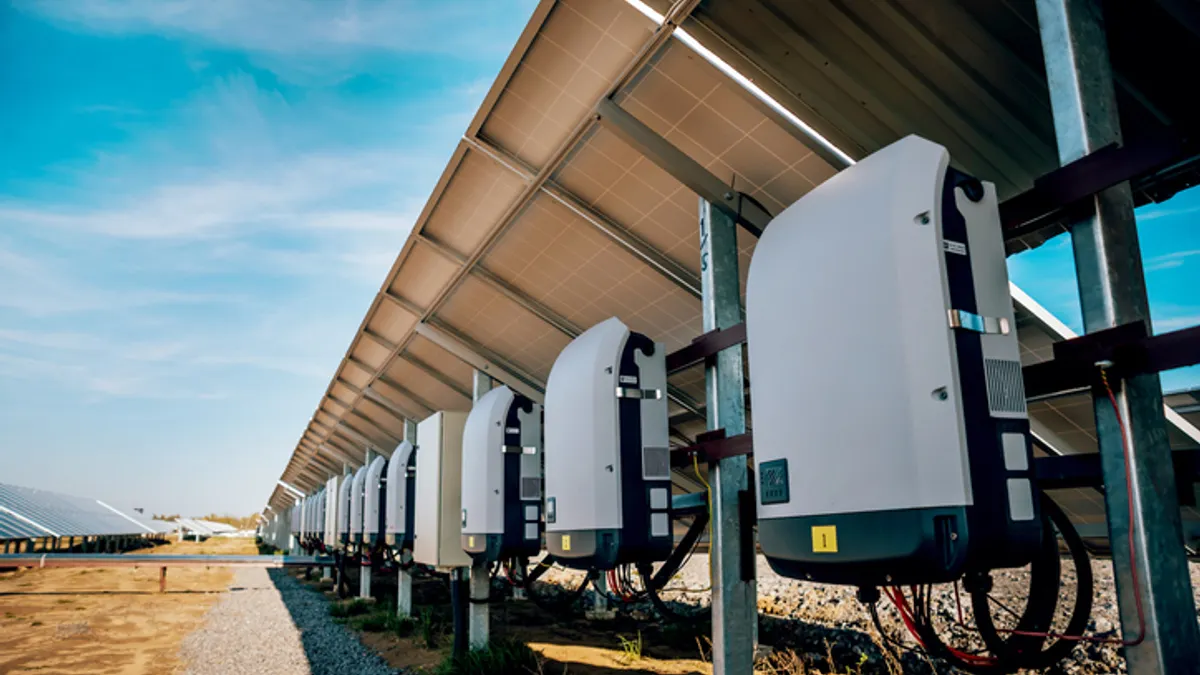Dive Brief:
-
Avangrid, Eversource Energy, National Grid and other utilities are calling for expanded energy efficiency and demand response programs as a near-term step to help keep the lights on in New England during winter cold snaps at times of low natural gas supplies.
-
In the long-term, ISO-New England should work with states and transmission owners to build out the region’s transmission system to tap into emissions-free resources such as offshore wind and to increase power imports, the utilities said Monday in a filing at the Federal Energy Regulatory Commission.
-
ISO-NE’s market monitor, Potomac Economics, told FERC the grid operator’s upcoming capacity auctions should be delayed so they can better reflect the region’s wintertime needs.
Dive Insight:
The comments were in response to a FERC conference held in Burlington, Vermont, in September to discuss New England’s ability to get through the winter when gas-fired power plants may not have enough fuel to burn.
“The region is entering the winter of 2022-2023 in a tenuous reliability position and with no clear path forward to ensure that essential supply reliability is addressed for future winters,” the utilities said.
Demand-side resources could help New England meet near-term needs, according to the utilities.
“Enhanced energy efficiency and demand response programs, while insufficient on their own, can also make an incremental difference and should be implemented by the states and supported by ISO-NE and FERC,” the utilities said.
Other measures include making sure the Everett liquefied natural gas terminal near Boston remains open and increasing interstate gas pipeline capacity and adding LNG storage, they said.
The region should immediately begin planning new transmission lines, according to the utilities.
“ISO-NE and the states should prioritize solutions that maximize the [New England transmission owners’] use and upgrading of their existing facilities and rights of way, thereby minimizing community and environmental impacts,” the utilities said.
Better use of New England’s power plants can address most of New England’s winter reliability needs, according to Potomac Economics.
“ISO-NE has sufficient fuel-secure generation capacity to maintain reliability in the winter with only modest levels of LNG imports,” the market monitor said. “Oil units do not maximize their inventories and gas units rarely contract for LNG primarily because ISO-NE’s markets do not generally give them adequate incentives to do so.”
Reliability is primarily affected by the oil supplies of the region’s 12 GW of oil-fired and dual-fuel generating capacity, Potomac Economics said. Those power plants entered recent winters with their oil tanks half full, according to the market monitor.
ISO-NE should assess winter fuel availability in its resource adequacy model and accredit capacity suppliers based on their marginal contribution to winter reliability, Potomac Economics said. Those changes would motivate generators to have enough fuel supplies for extreme winter weather, according to the market monitor.
ISO-NE’s next forward capacity auction, set for February, will procure capacity for the 2026/27 winter without any consideration of whether winning bidders will support wintertime reliability, Potomac Economics said.
To address the “deteriorating” winter reliability situation, Potomac Economics in June recommended that ISO-NE transition from a three-year forward auction to a prompt seasonal capacity market.
Under the proposal, ISO-NE would hold capacity auctions before each summer and winter. Among its benefits, a prompt market would make it easier for generators to contract for firm fuel and reflect those costs in their capacity offers, according to the market monitor.
“To facilitate this transition, we recommend delaying the next few [forward capacity auctions] until closer to their respective capacity delivery periods,” Potomac Economics told FERC.
Echoing a utility suggestion, the New England States Committee on Electricity, which represents the region’s governors, told FERC the Biden administration should be prepared to waive the Jones Act to make it easier to import LNG in an emergency.
NESCOE urged FERC to order ISO-NE to file annual reports assessing New England’s winter reliability status until a long-term solution is in place.
ISO-NE should fast-track a review of a possible seasonal capacity market to help make sure electricity is sufficient in the winter, according to NESCOE. The grid operator plans to start stakeholder discussions on the issue in 2024, the group said.
The grid operator should expand its analysis beyond natural gas-oriented solutions, according to NESCOE.
“Translating [British cubic feet] needs or gaps into MW and MWh broadens the set of solutions to be considered,” the group said. “Storage technologies are rapidly evolving, offshore wind turbines continue to increase in size and efficiency and various New England states continue to express interest in unlocking more hydroelectric generation.”















